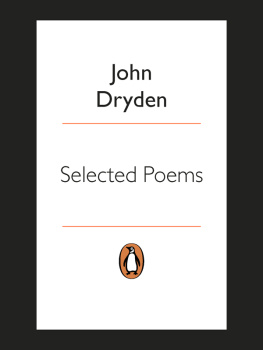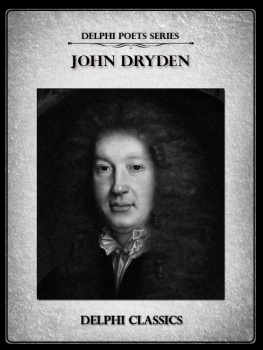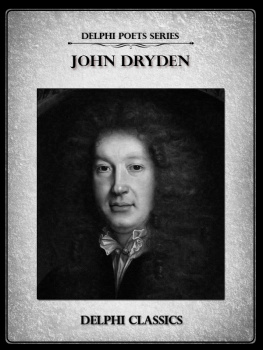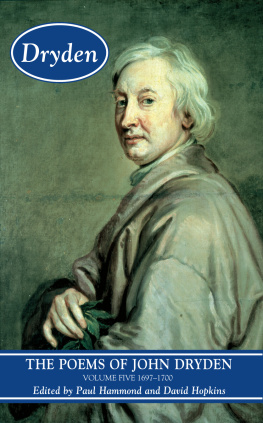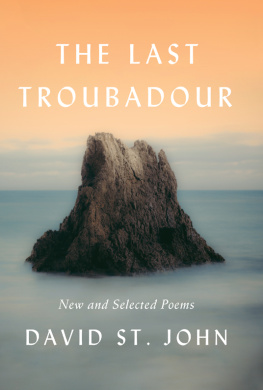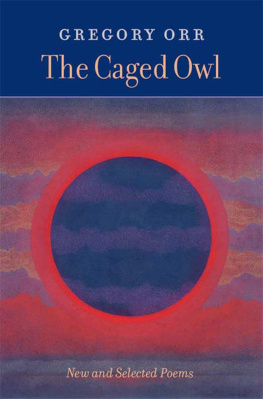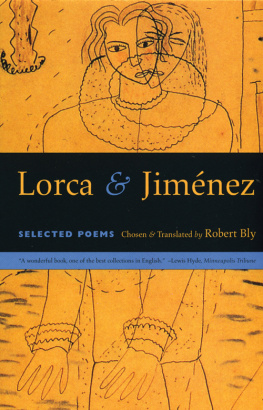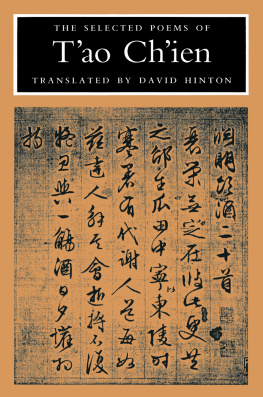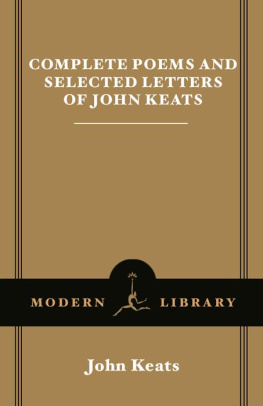John Dryden - Selected Poems
Here you can read online John Dryden - Selected Poems full text of the book (entire story) in english for free. Download pdf and epub, get meaning, cover and reviews about this ebook. year: 2001, genre: Art. Description of the work, (preface) as well as reviews are available. Best literature library LitArk.com created for fans of good reading and offers a wide selection of genres:
Romance novel
Science fiction
Adventure
Detective
Science
History
Home and family
Prose
Art
Politics
Computer
Non-fiction
Religion
Business
Children
Humor
Choose a favorite category and find really read worthwhile books. Enjoy immersion in the world of imagination, feel the emotions of the characters or learn something new for yourself, make an fascinating discovery.
- Book:Selected Poems
- Author:
- Genre:
- Year:2001
- Rating:4 / 5
- Favourites:Add to favourites
- Your mark:
- 80
- 1
- 2
- 3
- 4
- 5
Selected Poems: summary, description and annotation
We offer to read an annotation, description, summary or preface (depends on what the author of the book "Selected Poems" wrote himself). If you haven't found the necessary information about the book — write in the comments, we will try to find it.
Selected Poems — read online for free the complete book (whole text) full work
Below is the text of the book, divided by pages. System saving the place of the last page read, allows you to conveniently read the book "Selected Poems" online for free, without having to search again every time where you left off. Put a bookmark, and you can go to the page where you finished reading at any time.
Font size:
Interval:
Bookmark:

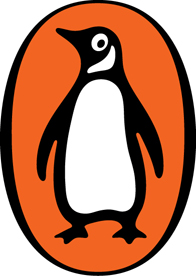
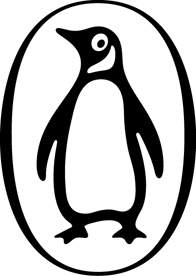
Steven N. Zwicker and David Bywaters


GENERAL EDITOR: CHRISTOPHER RICKS
After the Revolution in 1688 he lost his offices and pension and returned to the theatre to write again for a living. Drydens most important early poem, Annus Mirabilis, illustrates his skill in writing panegyric verse, but it is for his satiric poetry that he is best remembered. He once wrote: They say my talent is satire. If it be so tis a fruitful age, and there is an extraordinary crop to gather. His satiric masterpiece, Absalom and Achitophel, was published in 1681. Throughout his mature work Dryden declares political and religious convictions, but in poems like Religio Laici and The Hind and the Panther they are so intricately bound together and so thoroughly inflected by the shifting policies of late Stuart rule that it is difficult wholly to be certain of the poets political or religious values.
Above all, Dryden was a man of letters of rare versatility who turned his hand to almost all available varieties of literary expression nondramatic verse, heroic tragedy, comedy, songs, translations and critical essays. He died in 1700 and is buried in Westminster Abbey. Steven N. Zwicker is Stanley Elkin Professor of Humanities at Washington University in St Louis. His books include Drydens Political Poetry (1972), Politics and Language in Drydens Poetry: The Arts of Disguise (1984) and Lines of Authority (1993); and he has edited Politics of Discourse: The Literature and History of Seventeenth-Century England (1987), Refiguring Revolutions: Aesthetics and Politics from the English Revolution to the Romantic Revolution (1998) and The Cambridge Companion to English Literature: 16501740 (1998). David by Waters was educated at Washington University in St Louis, and now teaches at Northern Illinois University.
He is the author of Dryden in Revolutionary England (1991), a study of the political rhetoric of Drydens late works. We would like to dedicate this edition to William and Cecilia Wright and to William and Susan Bywaters, a new generation of readers.
The Preface to Absalom and Achitophel marked by a contemporary reader, Folger Shakespeare Library (see p. xi). . The title-page of the first edition of Religio Laici, Narcissus Luttrells copy with his comment, date and price of purchase, Folger Shakespeare Library (see p. 547). .
The DrydenTonson contract: Account of the second payment of the first subscription to the Virgil; Final accounting of the DrydenTonson Virgil, Folger Shakespeare Library. All illustrations are drawn from the Folger Shakespeare Library, John Dryden Collection, formed by Percy J. Dobell; they are reproduced by courtesy of the Trustees of the Folger Shakespeare Library.
Dryden virtually invented the commercial literary career; and through all the turns of a difficult public life, he fashioned from his own unlikely personality from his privacy, self-doubts, even verbal hesitation (qualities mocked by his enemies) a public figure of literary distinction. But he attained this celebrity at the cost of gossip and scandal and, in the last decade of his life (after the Glorious Revolution and his removal from the laureateship), of suspicion and scorn. The poets beginnings give no hint of literary greatness or the likelihood of fame. He was born in 1631 in a country town and to comfortable circumstance; he was educated at Westminster School and graduated A.B. from Trinity College, Cambridge. He held minor public office in the 1650s but had written almost nothing before he was twenty-seven.
Then, rather suddenly, and for a writer rather belatedly, Dryden began his long career as public poet. He mourned Oliver Cromwell in 1659 (Heroic Stanzas) and in what looks a sudden and convenient turn of allegiance he celebrated the return of monarchy in 1660, writing poems to Charles II, to the Lord Chancellor and to the Duchess of York; he praised the Royal Society (To Dr. Charleton, 1663) and defended the Royal Navy and its aristocratic high command (Annus Mirabilis, 1667). The first years seem a series of calculated moves; and the combination of talent, application and opportunity was crowned when Dryden was named Poet Laureate in 1668. But in addition to fashioning a career in the 1666s, Dryden also forged a new drama an epic theatre whose themes and language echoed the idioms of heroic verse and a body of literary criticism that, had he done nothing else, would have made his lasting reputation. Indeed, Drydens most important creation in the 1660s was the Essay of Dramatic Poesy (1668).
Along with Sir Philip Sidneys Defence of Poesy and Samuel Johnsons Lives of the Poets, Drydens Essay is central to our literature and to the creation of English literary criticism. More than any predecessor or rival, Dryden brought together all the strands of classical and contemporary European literary theory. Some of Drydens early plays have been all but forgotten, but he worked steadily at a craft that would enable him to create a comic masterpiece in Marriage A-la-Mode (1671), turn Miltons Paradise Lost into theatre in
Font size:
Interval:
Bookmark:
Similar books «Selected Poems»
Look at similar books to Selected Poems. We have selected literature similar in name and meaning in the hope of providing readers with more options to find new, interesting, not yet read works.
Discussion, reviews of the book Selected Poems and just readers' own opinions. Leave your comments, write what you think about the work, its meaning or the main characters. Specify what exactly you liked and what you didn't like, and why you think so.

